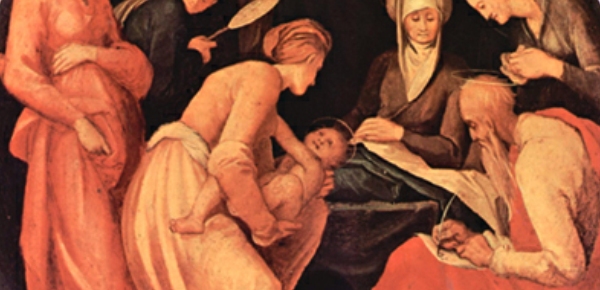
Today, at church, we started a new series on the Gospel of Luke. I got us started, and my enthusiasm for sharing all that I know and love about the gospels may have got the better of me. I’m not saying that’s a good thing. I pretty sure that people left today thinking, “that guy knows a lot about Jesus,” but not necessarily having tons of helpful things to grab hold of. Not that I think having “helpful things to grab hold of” was the intent of any of the gospel writers, which was in fact one of the points I was making. I think you get the idea.
So in my very limited ability, I tried to convey that there is so much to know and understand about who Jesus is in the gospels. The problem is that I may have tried to share all of that in one 30+ minute message. My text was mostly chapter 4 of Luke, and it really could should have been at least three different sermons.
Which brings me to why I’m here. I was pretty excited about everything that I had to say today, but sometimes EVERYTHING isn’t the best thing. You know… too much of a good thing.
So, instead of ambushing unsuspecting church-goers with more than they bargained for, I’m going to move a good bit of my discussion to here. I’m doing this for a few reasons.
First, as I’ve already said, I need an outlet. I’ll be studying Luke with the church and a couple different small groups. But I’ll enjoy having a place to say all that I’d like to say that, frankly, most people aren’t all that interested in.
Second, while looking for resources geared towards helping people study Luke on their own, I was fairly disappointed with the quality of what’s available for free online. I don’t want to denigrate the work that people have done to explain this gospel, but it just seems like they weren’t asking, “What is going to be helpful for people who are trying to make sense of Luke as they are sitting in front of their computer.” I’m absolutely certain that my efforts will suffer from the same deficiencies, but it won’t be from a lack of trying.
And third, I am hopeful that those who are studying Luke this summer and have questions will feel free to ask away. Church services generally don’t allow for that sort of interaction, nor would it be entirely helpful. Even if we made the opportunity available, people don’t ask the questions they have; either because they feel dumb asking or they think others will judge them for saying off-the-wall stuff. Hopefully, this can be a place where neither of these things get in the way of some good interaction.
So ideally, this will end up being a combination of commentary and online Bible study. We’ll see.
There are, however, a few obstacles with doing what I plan to do here.
1) While I know more than your average person about the Bible, I fall a far cry short of anything resembling a Biblical scholar. I’ll try to do decent research for what I put together, but please take it all with a grain of salt. I’m just a guy who loves studying the Bible, but probably gets it wrong about as often as I get it right.
2) I have a day job. It is called “being a pastor.” And while there should be more time for stuff like this, the days fill quickly. I’ll try to be fairly consistent, but we’ll see.
3) The first two obstacles pale in comparison with #3. I am about to be out of town for the better part of a month. And where I’m heading, internet access is going to be sketchy at best and more likely non-existent for long stretches of time. I’ll just need to get creative about how this gets done.
Ok, as you can see, this little project is going to require a lot of grace. However, with all that out on the table, I’m looking forward to diving in. My hope is that this really will be a resource for anyone who would study The Gospel of Luke (whether this summer or in the future). And be it known, the question that will drive the conversation day after day, at least for me, will be “What is it that Luke actually intended to communicate?”
I, for one, think this is an important question to ask. You might, as well.














